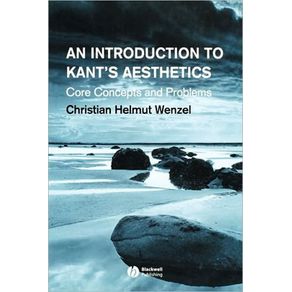'Kant's Critique of the Power of Judgment' is one of the most important and enduring contributions to philosophical aesthetics. It is also notoriously difficult. In an Introduction to Kant's Aesthetics, Christian Wenzel discusses and demystifies this seminal work, guiding the reader each step of the way, placing key points of discussion in the context of Kant's other work. The starting point of Kant's aesthetics, and Wenzel's treatment, is the observation that aesthetic judgments seem to hover uneasily between subjective and objective domains. On the one hand, there appear to be standards of taste, such that aesthetic judgments demand some kind of consensus; on the other hand, there simultaneously seem to exist no specific rules governing what is beautiful. Beginning with this premise, Kant delineates four moments of aesthetic judgment, considers the question of the beautiful, the sublime, and the ugly, and from this groundwork creates a new philosophical theory that reveals the essence of taste, and much else, about human nature besides. Wenzel artfully guides readers through Kant's work with thoroughness and charity, making Kant's aesthetics accessible to newcomers and more rewarding for those returning to the subject.



